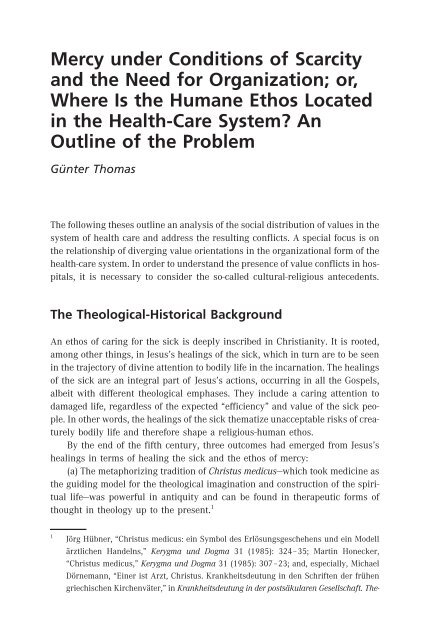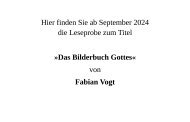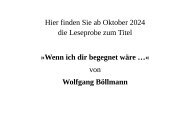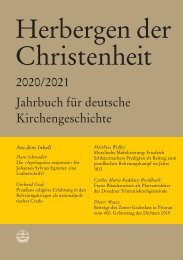Michael Welker | Eva Winkler | John Witte, Jr. | Stephen Pickard (Eds.): The Impact of Health Care (Leseprobe)
Pluralism has become the defining characteristic of many modern societies. Not only a plurality of individual and social claims and activities gain impacts on societal life. A creative pluralism of institutions and their norms profoundly shape our moral commitments and character – notably the family, the market, the media, and systems of law, religion, politics, research, education, health care, and defense. In the theoretical, empirical, and historical contributions to this volume, specialists on medicine, medical ethics, psychology, theology and health care discuss the many challenges that major transformations in their areas of expertise pose to the communication and orientation in late modern pluralistic societies. Contributors come from Germany, the USA and Australia.
Pluralism has become the defining characteristic of many modern societies. Not only a plurality of individual and social claims and activities gain impacts on societal life. A creative pluralism of institutions and their norms profoundly shape our moral commitments and character – notably the family, the market, the media, and systems of law, religion, politics, research, education, health care, and defense.
In the theoretical, empirical, and historical contributions to this volume, specialists on medicine, medical ethics, psychology, theology and health care discuss the many challenges that major transformations in their areas of expertise pose to the communication and orientation in late modern pluralistic societies. Contributors come from Germany, the USA and Australia.
You also want an ePaper? Increase the reach of your titles
YUMPU automatically turns print PDFs into web optimized ePapers that Google loves.
Mercy under Conditions <strong>of</strong> Scarcity<br />
and the Need for Organization; or,<br />
Where Isthe Humane Ethos Located<br />
in the <strong>Health</strong>-<strong>Care</strong> System? An<br />
Outline <strong>of</strong> the Problem<br />
Günter Thomas<br />
<strong>The</strong> following theses outline an analysis <strong>of</strong> the social distribution <strong>of</strong> values in the<br />
system <strong>of</strong> health care and address the resulting conflicts. Aspecial focus is on<br />
the relationship <strong>of</strong> diverging value orientations in the organizational form <strong>of</strong> the<br />
health-care system. In order to understand the presence <strong>of</strong> value conflicts in hospitals,<br />
it is necessary to consider the so-called cultural-religious antecedents.<br />
<strong>The</strong> <strong>The</strong>ological-Historical Background<br />
An ethos <strong>of</strong> caring for the sick is deeply inscribed in Christianity. It is rooted,<br />
among other things, in Jesus’s healings <strong>of</strong> the sick, which in turn are to be seen<br />
in the trajectory <strong>of</strong> divine attention to bodily life in the incarnation. <strong>The</strong> healings<br />
<strong>of</strong> the sick are an integral part <strong>of</strong> Jesus’s actions, occurring in all the Gospels,<br />
albeit with different theological emphases. <strong>The</strong>y include acaring attention to<br />
damaged life, regardless <strong>of</strong> the expected “efficiency” and value <strong>of</strong> the sick people.<br />
In other words, the healings <strong>of</strong> the sick thematize unacceptable risks <strong>of</strong> creaturely<br />
bodily life and therefore shape areligious-human ethos.<br />
By the end <strong>of</strong> the fifth century, three outcomes had emerged from Jesus’s<br />
healings in terms <strong>of</strong> healing the sick and the ethos <strong>of</strong>mercy:<br />
(a) <strong>The</strong> metaphorizing tradition <strong>of</strong> Christus medicus—which took medicine as<br />
the guiding model for the theological imagination and construction <strong>of</strong> the spiritual<br />
life—was powerful in antiquity and can be found in therapeutic forms <strong>of</strong><br />
thought in theology up to the present. 1<br />
1<br />
Jörg Hübner, “Christus medicus: ein Symbol des Erlösungsgeschehens und ein Modell<br />
ärztlichen Handelns,” Kerygma und Dogma 31 (1985): 324–35; Martin Honecker,<br />
“Christus medicus,” Kerygma und Dogma 31 (1985): 307–23; and, especially, <strong>Michael</strong><br />
Dörnemann, “Einer ist Arzt, Christus. Krankheitsdeutung in den Schriften der frühen<br />
griechischen Kirchenväter,” in Krankheitsdeutung in der postsäkularen Gesellschaft. <strong>The</strong>-
















